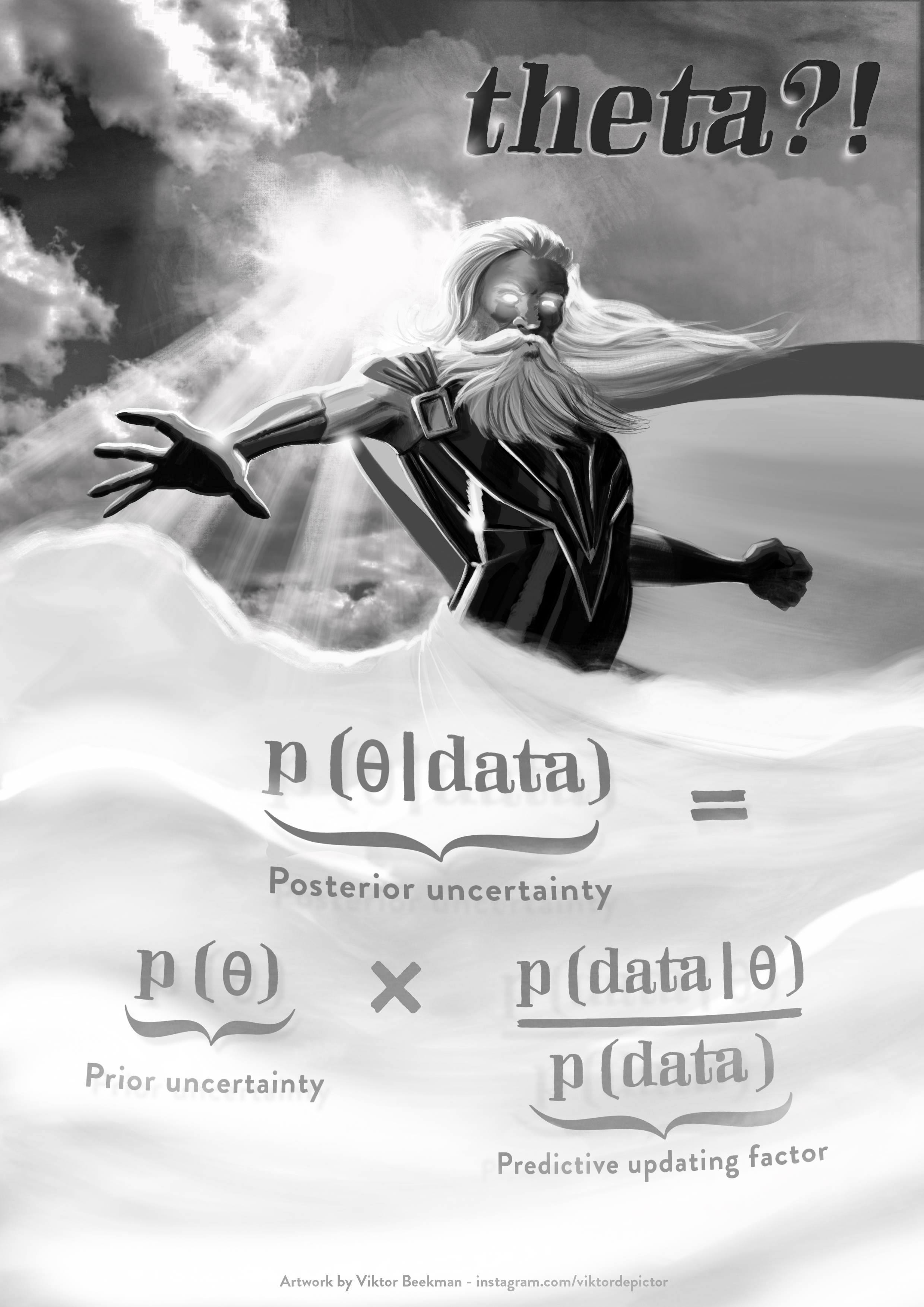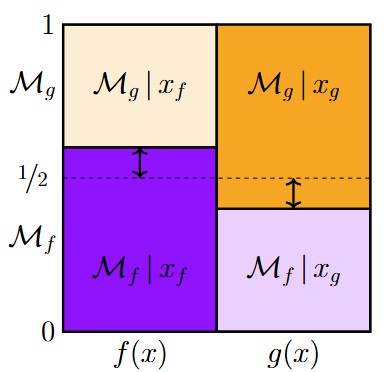Over the past year or so I’ve been working on a book provisionally titled “Bayesian bedtime stories”. Below is a part of the preface. The next post continues the cooking analogy by introducing the frequentist chef.
Even though the book [Bayesian Bedtime Stories] addresses a large variety of questions, the method of reasoning is always based on the same principle: contradictions and internal inconsistencies are not allowed. For instance, the propositions ‘Linda is a bank teller’ and ‘Linda is a feminist’ are each necessarily more plausible than the conjunction ‘Linda is a feminist bank teller’. Any method of reasoning that leads to a different conclusion is seriously deficient.
In order for our reasoning to be reasonable we therefore need to exclude relentlessly from consideration all methods, however beguiling or familiar, that produce internal inconsistencies. When we remove the debris only a single method remains. This method, known as Bayesian inference, stipulates that when we reason with uncertainty, we should obey the laws of probability theory. Simple and elegant, these laws lay the foundation for a reasoning process that cannot be improved upon; it is perfect — the reasoning process of the gods.1
As may be expected, adopting the reasoning process of a god brings several advantages. One of these advantages is that only the ingredients of the reasoning process are up for debate; that is, one may discuss how exactly a particular model of the world is to be constructed — how ideas are translated to numbers and equations. The proper design of statistical models is an art that requires both training and talent. One may also discuss what data are relevant for the model. But once the ingredients –model and data– are in place, the reasoning process itself unfolds in a single unique way. No discussion about that process is possible. Given the model of the world and the data available, the gods’ method of reasoning is unwavering and will infallibly lead to the same conclusion. That conclusion is misleading only to the extent that the ingredients were misleading.
Let’s emphasize this important advantage by further exploiting the cooking analogy. Suppose that, given particular ingredients, there exists a single unique way of preparing the best meal. You may have poor ingredients at your disposal –six ounces of half-rotten meat, two old potatoes, and a molded piece of cheese– but given these ingredients, you can follow a few simple rules and create the single best meal, a meal that even Andhrimnir, the Norse god of cooking, could not improve upon. What chef would deviate from these rules and willingly create an inferior dish? 2
The gods’ reasoning process is named after the reverend Thomas Bayes who first discovered the main theorem. What Bayes’ theorem (henceforth Bayes’ rule) accomplished is to outline how prior (pre-data) uncertainties and beliefs shall be updated to posterior (post-data) uncertainties and beliefs; in short, Bayes’ rule tells us how we ought to learn from experience.
All living creatures learn from experience, and this must be done by updating knowledge in light of prediction errors: gross prediction errors necessitate large adjustments in knowledge, whereas small prediction errors necessitate only minor adjustments.
In general terms, we then have the following rule for learning from experience:
Footnotes
1 As documented in many science fiction stories, the universe ceases to exist at the exact moment when its creator becomes aware of an internal inconsistency.
2 We purposefully ignore the fact that Andhrimnir only prepares a single dish. At Godchecker, the entry on Andhrimnir states: “He’s an Aesir chef with only one house special. He takes the Cosmic Boar. He kills it. He cooks it. The Gods eat it. It returns to life in the night ready for use in the next set meal. It’s a real pig of a life for the boar. A little variety in the kitchen would work wonders.”
References
Wagenmakers, E.-J., Morey, R. D., & Lee, M. D. (2016). Bayesian benefits for the pragmatic researcher. Current Directions in Psychological Science, 25, 169-176.
About The Author





